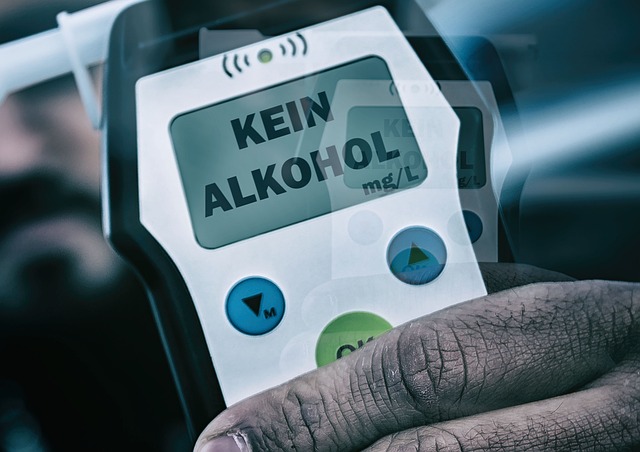Navigating international student DUI defense requires understanding varied global legal perspectives and seeking specialized counsel. Technology has revolutionized legal procedures, breaking geographical barriers for access to justice. Law firms use advanced data analytics, AI, cloud-based systems, and VR/AR to enhance defenses, predict outcomes, and improve communication. Educational institutions leverage digital tools for better student safety management, including real-time communication platforms and data analytics. Tech transformations in the legal sector streamline cases, reduce errors, and ensure seamless global engagement. Staying informed about tech advancements is crucial for navigating complex foreign laws and regulations.
In today’s interconnected world, understanding and navigating international student DUI laws is paramount for legal professionals serving a diverse global clientele. The integration of technology has revolutionized legal procedures and access to justice, offering innovative solutions that future-proof law practices. This article explores these advancements, focusing on their impact on international student DUI defense. We delve into tech’s role in enhancing legal services efficiency, student safety, and risk management, supported by real-world case studies and insights into emerging trends.
- Understanding International Student DUI Laws: A Global Perspective
- The Impact of Technology on Legal Procedures and Access to Justice
- Innovative Tech Solutions for Efficient Legal Services
- Enhancing Student Safety: Digital Tools for Risk Management
- Case Studies: Successful Implementation of Tech in Legal Systems
- Future Trends: Predicting the Role of Technology in Law for International Students
Understanding International Student DUI Laws: A Global Perspective

International student DUI defense requires a nuanced understanding of global legal perspectives. In many countries, driving under the influence (DUI) laws vary significantly from one nation to another, reflecting diverse cultural norms and historical developments. For international students navigating new road regulations, staying informed about these variations is paramount for avoiding legal pitfalls.
While some nations have stringent DUI penalties aimed at deterring reckless driving, others take a more lenient approach. This global disparity underscores the need for international students to seek local legal counsel when facing DUI charges. An experienced attorney specializing in International Student DUI Defense can provide tailored guidance, ensuring compliance with both local laws and protections specific to foreign nationals’ rights.
The Impact of Technology on Legal Procedures and Access to Justice

Technology has significantly transformed legal procedures, making them more efficient and accessible, especially with the rise of digital platforms. Online case filing, video conferencing for hearings, and secure document sharing have revolutionized the way legal services are delivered. This shift is crucial, particularly for international students facing legal issues like DUI (Driving Under the Influence) defense, ensuring they have access to justice without geographical barriers.
For instance, an international student accused of DUI in a foreign country can now consult with attorneys remotely, review evidence digitally, and participate in court proceedings via video link. Such technological advancements enable legal professionals to offer specialized services globally, fostering a more inclusive and responsive justice system. This is particularly beneficial for students who may face unique challenges navigating unfamiliar legal systems while maintaining their academic pursuits.
Innovative Tech Solutions for Efficient Legal Services

In today’s digital era, law firms are exploring innovative tech solutions to enhance efficiency and stay ahead in a rapidly changing legal landscape. One area where technology is making significant strides is international student DUI defense. Advanced data analytics and artificial intelligence can sift through vast amounts of legal data, providing insights that support robust case strategies. For instance, AI-driven tools can analyze similar past cases, predict potential outcomes, and identify patterns that might influence the defense’s approach.
Furthermore, cloud-based document management systems streamline the storage and retrieval of sensitive client information, ensuring quick access for legal professionals worldwide. In the context of international student DUI defenses, these systems enable seamless communication between lawyers in different jurisdictions, facilitating efficient case coordination. Additionally, virtual reality and augmented reality technologies are emerging as powerful tools for creating immersive legal experiences, enhancing client understanding of complex legal procedures and outcomes.
Enhancing Student Safety: Digital Tools for Risk Management

In today’s digital era, educational institutions are leveraging advanced tech solutions to enhance student safety and mitigate risks, especially for international students who may face unique challenges. Digital tools play a pivotal role in managing potential hazards, including International Student DUI Defense. These tools enable real-time communication, quick response systems, and data analytics to predict and prevent incidents before they escalate.
By implementing digital platforms, schools can facilitate better student-teacher interactions, improve reporting mechanisms for concerning behaviors or accidents, and provide access to critical support services instantly. This proactive approach ensures a safer learning environment, addressing issues like alcohol-related incidents (DUI) among international students, where cultural differences and language barriers might contribute to misunderstandings and risky decisions.
Case Studies: Successful Implementation of Tech in Legal Systems

In recent years, the legal sector has witnessed groundbreaking transformations through technology adoption, offering innovative solutions to streamline processes and enhance efficiency. One compelling example is the successful integration of tech in International Student DUI Defense cases. Through advanced data management systems, lawyers can now access and analyze vast amounts of relevant case law and legal precedents globally, enabling them to construct robust defenses tailored to unique international student scenarios.
For instance, AI-powered tools assist in automating repetitive tasks such as document reviews, allowing legal professionals to focus on strategic decision-making. This not only expedites case management but also reduces the risk of human error. Moreover, secure cloud-based platforms facilitate seamless communication and collaboration among lawyers, clients, and witnesses across different jurisdictions, ensuring everyone involved stays informed and engaged throughout the legal process. These tech solutions are reshaping the landscape of legal services, proving that embracing technological advancements is key to future-proofing law practices in an increasingly digital world.
Future Trends: Predicting the Role of Technology in Law for International Students

The legal landscape is rapidly evolving, especially with technology advancing at a breakneck speed. For international students navigating complex laws and regulations in a new country, staying ahead of the curve is essential, particularly when it comes to issues like International Student DUI Defense. Predicting the role of technology in law allows us to glimpse into a future where legal services can be more accessible, efficient, and specialized. Artificial intelligence (AI) and machine learning algorithms have the potential to revolutionize legal research, making it faster and more accurate.
For instance, AI could aid in analyzing massive amounts of legal data, including previous cases involving International Student DUI Defense, to identify patterns and precedents. This technology can assist lawyers in building stronger arguments and providing tailored advice to international students facing legal troubles. Additionally, blockchain technology offers secure and transparent solutions for managing legal documents and contracts, ensuring the integrity of data and streamlining processes like visa applications and academic record-keeping.
As we look towards the future, technology is set to play an increasingly vital role in shaping the legal landscape for international students. By leveraging innovative tech solutions, such as streamlined digital documentation and real-time case management systems, legal services can become more accessible and efficient, benefiting both students and their DUI defense strategies. The successful implementation of these technologies, as seen in various case studies, demonstrates their potential to enhance safety, improve outcomes, and navigate the complexities of international student law. Staying ahead of the curve through continuous innovation will be crucial for maintaining a robust legal framework that supports and protects the rights of international students globally.






